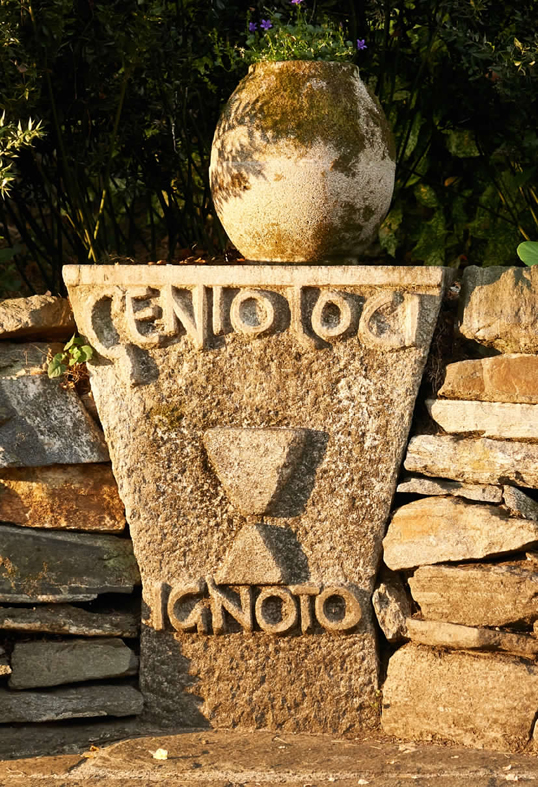
ITA ENG


| ERANOS-JUNG LECTURES 2024 | Magic and Science in the Modern Age: From the World of Secrets to Public Knowledge
EJL2024-03

Conferenza: Magic and Science in the Modern Age: From the World of Secrets to Public Knowledge
Lecturer: Franco Giudice (Università Cattolica del Sacro Cuore, Milan)
Date: Friday, May 17, 2024, 6:30 p.m.
Place: Monte Verità (Ascona), Auditorium and Zoom: https://us02web.zoom.us/j/82811037567
Cycle: Eranos-Jung Lectures 2024 - The Great Worksites of Contemporaneity. Looks at the Knots of the Present
Language: Italian
Moderator: Fabio Merlini (Eranos Foundation, Ascona / SUFFP, Lugano)
Followed by discussion with the audience and aperitif
The video recording of the conference is viewable on the official You Tube channel of the Eranos Foundation.
Lecture Presentation
At the threshold of modernity, science and magic are still shrouded in a bond that is difficult to dissolve. They are, so to speak, in a relationship of contiguity rather than clear opposition. The revival of magic was linked to Marsilio Ficino's translation, between 1461 and 1463, of the Corpus Hermeticum, which was later published in 1471: a collection of theological and magico-astrological texts attributed to the legendary figure of Hermes Trismegistus, or "thrice-great," the alleged founder of the religion of the Egyptians, a contemporary of Moses, as well as the source of Pythagoras and Plato. What characterizes these texts is the idea that every object in the universe consists of occult sympathies that connect it to the whole; that everything is divine; that between the macrocosm (the universe) and the microcosm (man) there are precise correspondences, which man is able to grasp. In particular, the magician is the one who can penetrate this network of correspondences, since he knows its secrets and is able - through invocations, images, talismans, etc. - to use them to his own advantage. Secrets precisely, which are to be concealed and made unrecognizable, as the exclusive patrimony of a chosen circle. The texts of the Corpus Hermeticum are referred to by Copernicus, Kepler, Newton, just to name a few of the founding fathers of modern science, to whom they appeared not as relics of gloomy superstitions of the past, but as an ancient and steadfast heritage of ieee, to be drawn upon and confronted. Despite this permanence, however, a different, strongly contrasting attitude to the secret knowledge of magicians also emerges. The idea that science is a universal form of knowledge, comprehensible to all and that everyone can contribute to its construction, is increasingly gaining ground. That is, the idea that science must be public and that secrecy rather than a value is a disvalue.
Lecturer' Bio-bibliography
Franco Giudice teaches History of Science at the Università Cattolica del Sacro Cuore in Milan. He is co-director of the journal "Galilaeana. Studies in Renaissance and Early Modern Science." In 2018 he was on the team (composed of Michele Camerota and Salvatore Ricciardo) that discovered and analyzed the autograph of Galileo's famous Letter to Benedetto Castelli dated December 21, 1613, which was found at the Royal Society Library in London. He deals with authors (Copernicus, Galileo, Descartes, and Newton, in particular) and issues (science and society, science and politics, science and religion, science, and technology) that led to the birth of modern science, on which he is writing a forthcoming book for Mondadori Publishers. His publications include Luce e visione. Thomas Hobbes e la scienza dell’ottica (1999), Lo spettro di Newton. La rivelazione della luce e dei colori (2009), Il telescopio di Galileo. Una storia europea (with M. Bucciantini and M. Camerota, 2012, translated into English in 2015), and Galileo ritrovato. La lettera a Castelli del 21 dicembre 1613 (with M. Camerota and S. Ricciardo, 2019). He has translated and edited Isaac Newton's Scritti sulla luce e i colori (2006) and Principi matematici della filosofia naturale (2018) as well as an annotated edition of Galileo's Saggiatore (with M. Camerota, 2023). He writes in the "Domenica" of the "Sole 24 Ore".
--
The Foundation wanted to question some leading figures in today's cultural world, asking them to present the projects and issues on which they are working. The idea is to bring into dialogue at a distance qualified gazes on the nodes of our present, to highlight their risks, opportunities, and prospects. Not, of course, to listen to the last word on what is happening today, but rather to enter their laboratories of thought and try to focus on a kind of ongoing geography of the present time: to orient ourselves, to find ourselves, to map out possible virtuous paths-despite the disorientation and uncertainty that characterizes us, in an age that is very rich in technological resources, but very poor in future perspectives. Rather than inviting them to reflect on a guiding theme, as is the Eranos-Jung Lectures usual practice, we wanted to offer the lecturers the chance to present to the audience the issues they are working on, to see how the gaze on an object is constructed, through what sensibility, what concerns, what desire for understanding, and what method. And, of course, what passion. It will be a journey that will allow us to visit some “great worksites of contemporaneity” dedicated to different thematic areas: i.e., the state of health of our democracies; the fate of the “book” object and interiority in the time of endless distraction and social media; the reality of the metaverse, the overcoming of the human, and the resources of mysticism; the sonic perceptive in a society that continually solicits the sense of hearing; the solitude of the artist in the glittering world of the commodification of creativity; the drifts of the divine; and the meaning of making culture. In essence: a journey outside and inside ourselves.